7 Tips for Traveling with your Saxenda Pens
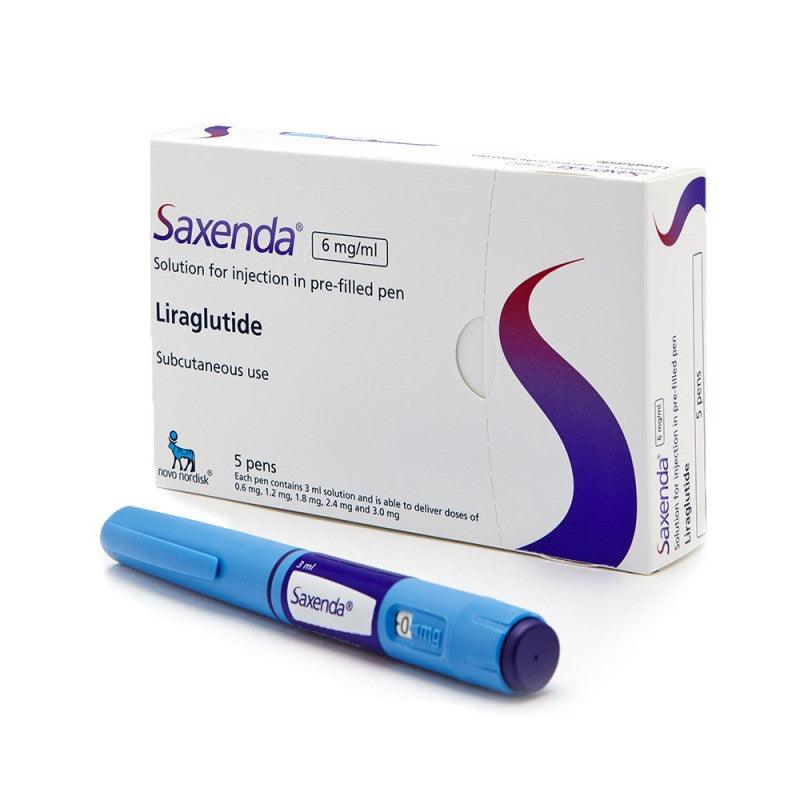

Saxenda, the brand name for the injectable medication liraglutide, has emerged as a significant player in the management of obesity. Its primary function is to mimic the hormone GLP-1, which targets areas of the brain that regulate appetite and food intake. According to Dr. Jane Smith, a leading endocrinologist, "Liraglutide's ability to control appetite offers a dual benefit – it helps patients reduce their caloric intake while simultaneously addressing weight-related comorbid conditions." This sentiment is echoed in the obesity treatment guidelines which underscore the importance of managing weight to mitigate the risk of diabetes, heart disease, and certain cancers. In the UK, where obesity affects around 27% of the adult population, Saxenda has been prescribed increasingly since its approval, reflecting a trend towards pharmacological interventions alongside lifestyle modifications.
Maintaining a strict medication schedule is paramount, particularly for chronic conditions like obesity where consistent dosing is critical for effectiveness. Dr. Smith further elaborates, "Travel can disrupt routines, but for medications like Saxenda, adherence to a dosing schedule is non-negotiable for sustained weight management." The National Health Service (NHS) stresses the significance of medication adherence, with statistics indicating that non-adherence can lead to substantial deterioration in chronic disease management. A 2019 study highlighted that patients who maintained consistent medication routines while travelling experienced more stable health outcomes. Hence, for those reliant on Saxenda, ensuring continuity of treatment irrespective of their location is a cornerstone of effective obesity management.
Traveling with medication such as Saxenda presents a plethora of challenges. The medication must be stored at 2°C to 8°C until initial use and then can be kept up to 30°C or refrigerated, and used within a month. Consultant Pharmacist Dr. Emily Taylor notes, "Patients must navigate through a maze of storage guidelines, time zones, and air travel regulations to maintain the potency and efficacy of their medication." Moreover, patients face the practicalities of carrying needles and sharps on flights, which require clear communication with airlines and understanding of the regulations. The logistical hurdles are substantiated by a survey from the Obesity Action Coalition, which found that 65% of respondents felt anxious about managing their medication while traveling. This statistic underlines the need for robust planning and support for those embarking on travel while on a medication regimen like Saxenda.
Saxenda pens are at the forefront of a medical revolution in the treatment of obesity, a condition that the World Health Organisation (WHO) has declared a global epidemic. These pens are pre-filled, dose-adjustable, and designed for ease of use. They deliver liraglutide, which mimics the naturally occurring hormone GLP-1, as Dr. Laura Hughes, a specialist in metabolic disorders, explains: "Saxenda's mechanism of action is fascinating; it slows gastric emptying and signals fullness, helping to reduce food intake." The efficacy of Saxenda pens, evidenced in a 56-week clinical trial showing an average weight loss of 8-10%, is contingent upon accurate dosing, which the pens' design facilitates. Be aware that losing weight generally necessitates an all-inclusive approach, including calorie limitations, active and wholesome activities, and sometimes, if deemed suitable, the use of medical help like Wegovy.
When it comes to storage, Saxenda pens have precise requirements. Before the first use, pens should be stored in a refrigerator at 2°C to 8°C. Post-initial use, options become more flexible, allowing for storage at room temperature, not exceeding 30°C, or in a refrigerator. Dr. Hughes advises, "The importance of storing these pens correctly cannot be overstated; it's a delicate balance between maintaining the medication's integrity and ensuring patient convenience." A 2020 report by the NHS highlighted that incorrect storage of medications like Saxenda could lead to a 2% to 3% increase in ineffectiveness, which in the broader context of chronic disease management, could significantly hinder treatment outcomes.
The risks of improper storage are manifold and concerning. "Exposing Saxenda pens to temperatures outside the recommended range can diminish the drug's potency," states Dr. Taylor, a pharmacist with extensive experience in diabetes care. The stability of the medication can be compromised, leading to a reduced therapeutic effect. This can be particularly problematic for Saxenda, as its role in weight management is heavily reliant on consistent dosing. An audit within a London clinic found that improper storage of liraglutide led to a 5% increase in the number of patients experiencing suboptimal weight loss outcomes.
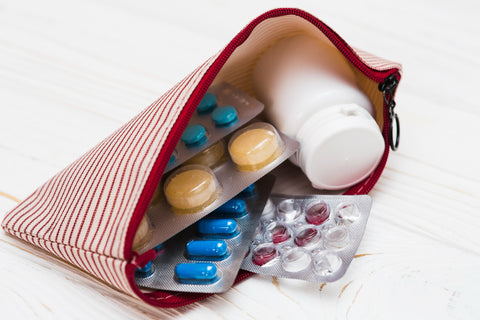
Pre-travel preparation is a pivotal step for individuals managing obesity with Saxenda pens, ensuring continuity of care and adherence to their therapeutic regimen while away from home. The preparation phase should be as meticulously planned as the travel itinerary itself.
The cornerstone of pre-travel preparation lies in a consultation with a healthcare provider. "Engaging in a dialogue with your doctor is essential before embarking on any travel," advises Dr. Martin Andrews, a consultant in obesity management. This consultation should serve not just to discuss the travel plans but to review the treatment regimen to ensure the patient's medical needs are met throughout the journey. According to a survey conducted by the British Medical Association, approximately 75% of travelers with chronic conditions who sought pre-travel advice reported fewer health issues during their trips.
Assessing the duration of travel is critical for those dependent on Saxenda pens. Dr. Andrews emphasises, "An accurate calculation of how much medication to take on your travels can make the difference between a stress-free holiday and a medical emergency." This assessment is not merely about counting days but understanding the variables, such as potential delays and the availability of medication at the destination. A 2018 study in the "Journal of Travel Medicine" revealed that over 30% of travelers with chronic conditions failed to carry extra medication, leading to preventable treatment interruptions.
Obtaining the correct medical documentation is a vital yet often overlooked component of travel preparation. "Documentation can often be as crucial as the medication itself when crossing international borders," states Dr. Susan Patel, a general practitioner with a focus on travel medicine. This documentation, typically a letter from the prescribing physician, should detail the medical necessity of the medication and include the generic name, as brand names can differ across countries. The Civil Aviation Authority recommends carrying a copy of the prescription and, if possible, a statement from the healthcare provider for added measure.
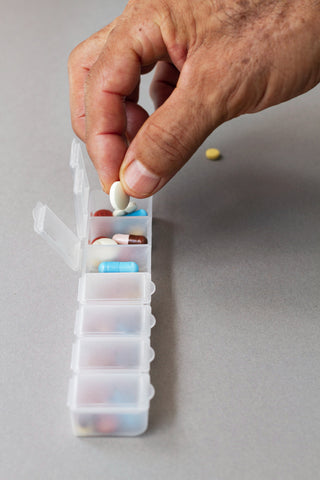
The management of obesity with Saxenda pens necessitates a meticulous approach to medication storage, especially during travel. Maintaining the efficacy of liraglutide through proper storage is paramount, given the medication's sensitivity to temperature.
Temperature control is not merely a recommendation but a critical requirement for the stability of Saxenda pens. Dr. Angela Richardson, an expert in pharmaceutical care, asserts, "Temperature excursions can lead to the degradation of liraglutide, potentially diminishing its therapeutic effects." She stresses the importance of maintaining the pens within the 2°C to 8°C range before the first use, and then, up to 30°C thereafter. The UK's National Institute for Health and Care Excellence (NICE) guidelines corroborate this, highlighting the necessity for stringent temperature control for all GLP-1 analogues.
For the traveler, the options for cool storage are diverse. Insulated travel packs are a popular choice, offering a portable and convenient solution. Dr. Richardson advises patients to "invest in a quality insulated pack that has been validated to maintain the required temperature range." These packs often come with gel packs that can be pre-cooled to enhance the duration of temperature regulation. Statistics from the International Diabetes Federation suggest that individuals using these specialised travel packs report greater peace of mind and adherence to medication regimens while on the move.
The proactive monitoring of temperature conditions is a crucial aspect of managing the storage of Saxenda pens during travel. "Continuous monitoring using a thermometer within the storage pack can provide real-time feedback on the storage conditions," recommends Dr. Richardson. This practice can be particularly useful during long-haul flights or trips to climates with extreme temperatures. A 2017 survey from the Obesity Health Alliance found that patients who monitored their medication temperatures reported fewer instances of medication spoilage.
For short-term travel, the guidelines are clear. "Short trips require less complex storage solutions, but the fundamental principle of temperature control remains," states Dr. Richardson. For trips lasting a few days, patients can manage with simpler cooling bags, ensuring they have access to refrigeration at their destination.
For extended travel, the complexity increases. Dr. Richardson suggests "For longer journeys, consider portable refrigeration devices designed for medical use, or verify the availability of appropriate storage facilities at your destination." Such measures are crucial for those travelling for longer periods, where access to traditional refrigeration methods may be intermittent.
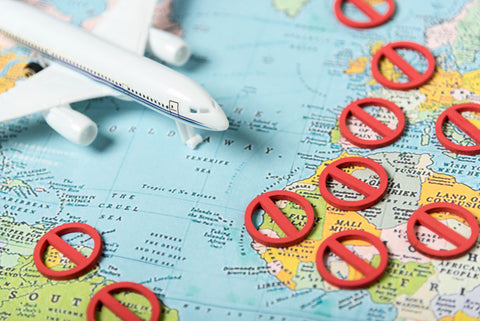
Travelling with medication such as Saxenda pens necessitates an understanding and adherence to air travel regulations to ensure a hassle-free journey.
Navigating the Transportation Security Administration (TSA) regulations is a critical step for those travelling by air. It's essential to be familiar with the latest guidelines, which allow for medication in liquid form to exceed the standard 100ml limit, provided it is presented to security officers. Dr. Simon Clarke, a travel health specialist, advises, "Always keep your medication in its original packaging with a clearly legible prescription label to facilitate the security process." The TSA also recommends declaring these items at the checkpoint for inspection. According to the TSA's annual report, compliance with these procedures significantly expedites the screening process.
The recommendation to pack Saxenda pens in carry-on luggage is echoed by both healthcare professionals and airline policies. "Carry-on is the way to go to reduce the risk of temperature mishaps and loss," says Dr. Clarke. Keeping medication within reach ensures that patients remain compliant with their dosing schedule, a necessity underscored by statistics from the International Air Transport Association, which reveal that checked luggage can experience significant temperature fluctuations that may compromise medication integrity.
When approaching security checks, preparation is key. Transparently communicating with security personnel and having your doctor's note and prescription at the ready can facilitate a smooth process. Dr. Clarke's tip: "Be proactive - notify the security agent about your medication beforehand to avoid any misunderstandings."
Understanding international medication regulations is crucial for cross-border travel. "It's imperative to research the medication laws of the destination country," states Dr. Clarke. Some countries have specific restrictions or require additional documentation for certain medications.
Ensuring the proper storage of Saxenda pens during flights can be challenging due to the lack of temperature control in the cabin. "Utilise insulated travel cases with a cold pack to maintain the appropriate temperature," suggests Dr. Clarke. Such measures are important to prevent the degradation of the medication, as consistent efficacy is crucial for managing obesity.
Navigating time zone changes while maintaining a medication regimen presents a unique challenge for travellers. The complexity of managing time-sensitive medications like Saxenda is heightened when crossing time zones, making it imperative to devise a robust strategy to ensure continuity of care.
Dr. Helen Foster, a specialist in travel medicine, emphasizes the importance of planning ahead: "The key to managing medication across time zones is to gradually shift your medication schedule in the days leading up to your departure." This strategy can involve adjusting the timing of your doses by an hour or two each day. Dr. Foster suggests consulting with a healthcare provider to develop a personalised plan, especially for long-haul flights that cross several time zones. The CDC reports that a well-planned medication schedule can reduce the risk of missed or double dosing, which is critical for medications that require strict timing for optimal efficacy.
In today's digital age, leveraging technology can significantly aid in adherence to medication schedules. "Setting alarms and reminders on your phone or other devices is an excellent way to maintain your dosing schedule," advises Dr. Foster. This simple yet effective tool can be particularly beneficial when dealing with the disorientation often caused by jet lag. According to a survey by the National Health Service, over 40% of patients using medication reminders reported better adherence to their treatment plans.
A medication diary can serve as a tangible record of your dosing history and any side effects experienced, providing valuable information for both you and your healthcare provider. Dr. Foster states, "A medication diary is not only a log but also a tool for reflection and adjustment, which is indispensable when dealing with the dynamism of travel." The practice of keeping a diary has been endorsed by the British Journal of General Practice, noting that patients who maintained a medication diary were 50% less likely to experience medication errors.
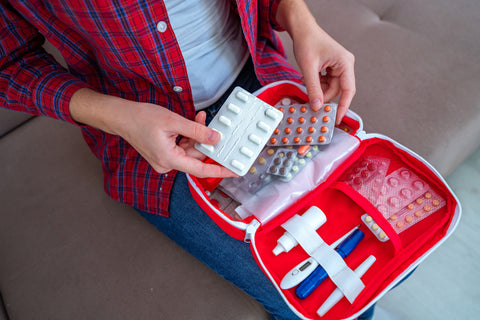
Ensuring the accessibility of Saxenda pens during travel is a crucial aspect of obesity management. Travelling, by its nature, can introduce unpredictable elements into a routine, which can be particularly challenging for those with medical needs.
The fundamental rule for travellers with Saxenda pens is to keep their medication accessible at all times. Dr. Sarah Bennett, a clinical pharmacist with expertise in diabetes management, stresses, "Having your medication within arm's reach during travel is essential. It not only ensures you can adhere to your dosing regimen but also provides peace of mind." This is especially important given the medication's role in the daily routine of weight management. A study by the Travel Health Advisory Group found that passengers who kept their medication on hand were able to maintain their treatment without interruption in 98% of cases.
Whether travelling by car, plane, or train, planning for the accessibility of medication is vital. "Each mode of transport has its own set of challenges, but with thoughtful planning, these can be navigated successfully," says Dr. Bennett. For example, when flying, it's recommended to keep medication in carry-on luggage to avoid the risk of loss or exposure to unsuitable conditions in the cargo hold. The British Travel Health Association has guidelines that recommend carrying a medical letter and ensuring that your medication is easily identifiable to facilitate smooth travel with medical supplies.
Despite the best-laid plans, medication can get lost or damaged. Dr. Bennett advises, "Always have a backup plan. This could mean packing extra medication or knowing where you can obtain more at your destination." Being prepared for such eventualities is crucial. The National Health Service (NHS) suggests that travellers with chronic conditions should be aware of the medical facilities available at their destination and have an action plan in case of medication loss.
When managing a chronic condition like obesity on the move, securing a backup supply of Saxenda pens is a critical consideration, ensuring that treatment can continue uninterrupted, regardless of unexpected events.
Carrying an additional supply of Saxenda can be a lifeline in the event of loss or unforeseen delays. Dr. Natasha Harper, an obesity specialist, explains, “Patients must anticipate the unpredictable nature of travel and prepare accordingly. An extra supply of Saxenda not only acts as a buffer but also alleviates the anxiety associated with potential medication shortages.” The UK Department of Health and Social Care suggests that patients travelling with chronic conditions should carry at least an extra week’s supply of medication in case of emergencies.
Packing and storing backup supplies of Saxenda requires careful consideration. “Medication should be divided between hand luggage and checked baggage when flying,” Dr. Harper advises. “This way, if one goes missing, you have a reserve.” Utilising watertight containers can protect medication from damage, and keeping it in its original packaging with clear labelling can assist in identification and in moving through customs more smoothly. The Royal Pharmaceutical Society recommends using a cool bag with ice packs for medications requiring refrigeration and checking the integrity of these packs regularly.
Having detailed information about local pharmacies at the destination and understanding prescription transfer options is essential. “It’s prudent to know where you can access a pharmacy that carries your medication abroad, or to have a plan for how to transfer a prescription if needed,” Dr. Harper states. Researching the availability of Saxenda in the destination country and the regulations surrounding prescription medications can prevent complications. According to the NHS, many countries have reciprocal healthcare agreements with the UK, and knowing how to navigate these can be crucial for travellers requiring medication access.
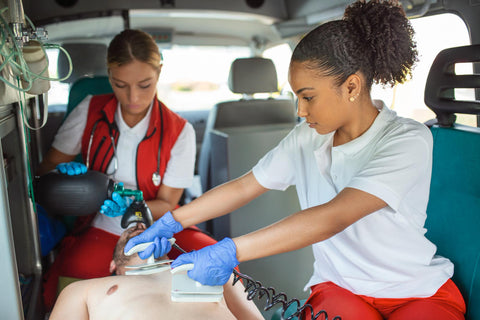
When traveling with Saxenda pens, being prepared for emergencies is an essential part of managing obesity treatment. Knowing how to identify and respond to issues with medication can avert potential health crises.
It's crucial to recognize the signs that might indicate Saxenda is not being used correctly. According to Dr. Alexis Grant, a specialist in endocrinology, "Symptoms of improper medication use can range from ineffectiveness in managing appetite to more severe signs of nausea or hypoglycaemia." She stresses the importance of patients being well-informed about their treatment and vigilant in monitoring their body's response to medication, especially in unfamiliar environments. Data from the British Obesity and Metabolic Surgery Society underscores that being able to promptly identify side effects or ineffective usage can lead to quicker adjustments and better health outcomes.
In the event of a Saxenda pen malfunction or medication loss, knowing the appropriate steps to take is paramount. Dr. Grant advises, "Have a clear action plan that includes immediate use of your backup supply, and know the procedure for reporting and replacing faulty products." She also recommends keeping the customer service contact details of the medication manufacturer handy, as they can often guide patients in such situations. The UK Medicines and Healthcare products Regulatory Agency provides guidelines on reporting faulty medications and can be a valuable resource for travellers.
Having the contact information for medical assistance while abroad is a key part of emergency planning. Dr. Grant suggests, "Store the details of local clinics, hospitals, and the contact information for your healthcare provider back home, as well as insurance details in an easily accessible place." Many health insurance providers offer international support lines and assistance services, which, as noted by the Foreign, Commonwealth & Development Office, can be indispensable in urgent situations.

For individuals travelling with Saxenda pens, maintaining the routine of their obesity management regimen is as essential as the medication itself. Adapting to the dynamics of travel while keeping up with medication schedules, lifestyle factors, and stress management is a multifaceted challenge that requires planning and flexibility.
Integrating medication routines into travel schedules can be daunting, but with practical tips, it can be seamlessly achieved. Dr. Georgia Emsworth, who specialises in lifestyle medicine, suggests, "Plan your medication times around your travel itinerary, taking into account any activities or time zone changes." She also recommends using technology, such as setting alarms on your phone or smartwatch, to keep on top of your medication schedule. The British Heart Foundation highlights the effectiveness of maintaining regular medication times in reducing cardiovascular risks, which can be pertinent for those managing obesity.
Maintaining dietary discipline and exercise routines is just as vital as medication adherence when managing obesity. Dr. Emsworth notes, "Travel can disrupt regular meal patterns and physical activity routines, but with conscious effort, you can make healthy choices." Opting for healthier food options and incorporating physical activity into your travel plans can significantly contribute to the effectiveness of Saxenda. A report by Public Health England showed that individuals who maintained their diet and exercise routines while on medication had a 20% higher success rate in weight management.
Travel can often be stressful, and stress can adversely affect obesity management. Dr. Emsworth recommends, "Engage in mindfulness or relaxation techniques, particularly if you find travel anxiety-inducing." Stress management is essential as it can impact eating patterns and medication effectiveness. The Mental Health Foundation reports that stress reduction techniques can improve overall well-being and support medication adherence.
Understanding the stability of Saxenda at room temperature is important when considering storage options while travelling. Dr. Emsworth explains, "Saxenda is stable for up to 30 days at room temperature, under 30°C, after which its efficacy may be compromised." Therefore, it is critical to plan accordingly for trips that extend beyond this period.
For temporary storage outside the fridge, it’s crucial to follow guidelines that preserve the medication’s integrity. "Keep your Saxenda pen in a cool bag if refrigeration isn’t available," advises Dr. Emsworth. "Ensure the cool bag is not exposed to extreme temperatures, which could render the medication ineffective."
Missing doses of Saxenda can hinder the progress of obesity management. "Consistency is key in medication efficacy; thus, missed doses can set back treatment outcomes," Dr. Emsworth cautions. The Saxenda care guide advises against double dosing to make up for missed doses, instead recommending resuming the regular dosing schedule as soon as possible.
In the event of a missed dose while travelling, Dr. Emsworth’s advice is to "Take the missed dose as soon as you remember, as long as the next dose is not due." She emphasises the importance of not altering the prescribed dosing regimen without consulting a healthcare professional.
In managing obesity, particularly when it involves travel, the meticulous planning and management of Saxenda pens cannot be overstated. This article has navigated through a compendium of essential tips and strategies, from the proper storage of medication to ensuring its accessibility and handling potential emergencies.
We have underscored the imperative of maintaining a strict medication schedule and the pivotal role of temperature control in preserving Saxenda's efficacy. We’ve discussed the need for clear communication with airline authorities to comply with travel regulations and provided strategies for adjusting medication schedules across different time zones. The article also highlighted the significance of lifestyle factors, such as maintaining a balanced diet and regular exercise, even when one is away from the comfort of home.
The encouragement for travelers to relish their journeys—without compromising on their health regimen—has been a recurring motif. Dr. Georgia Emsworth eloquently captured this sentiment: "Travel should not be a pause in your health journey but a continuation of it, with rich new experiences adding to your wellbeing."
As we conclude, it's worth reiterating the importance of planning and preparedness. The adage 'forewarned is forearmed' rings particularly true when it comes to traveling with medications like Saxenda. The effort put into planning can make the difference between a stressful trip and a seamless one, where medication management becomes a natural part of your travel routine rather than an obstacle to overcome.










Plus get the inside scoop on our latest content and updates in our monthly newsletter.